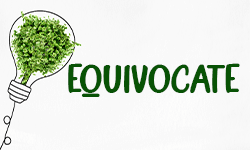
Word definitions are a widespread phenomenon in the English language, which promotes cohesion and comprehension. Understanding the exact meanings of terms is of the utmost importance in academic writing to ensure an accurate communication of concepts. These definitions serve as connecting points between various cultures, languages, and points of view. This article will delve into the etymology of “equivocate” and explore its spelling and meaning.
Use of “equivocate” in a sentence
The term “equivocate” belongs to the family of verbs, referring to someone deliberately using vague language to deceive people or to avoid speaking the truth. This is often done in a way in which the words being said have more than one sense or a double meaning, which then makes it seem as if they say one thing but intend another. This verb also exists in the form of a noun as “equivocation.”
How to spell “equivocate” correctly
For native English speakers and English learners, the word “equivocate” can be difficult to spell. If you are uncertain about correctly spelling this verb, it may prove beneficial to trace its origins. “Equivocate” originates from the Late Latin “aequivocus,” with “aequi,” meaning “equal” and “voc-” meaning “voice.” The meaning of “of identical sound” was then turned into “to call by the same name,” known as “equivocation,” which later turned into its current meaning of “using a word in more than one sense” in the form of “equivocate.”
Correct spelling
equivocate
Wrong spelling
eqivocate
Synonyms for “equivocate”
Synonyms can be used if you feel unsure about the correct spelling of “equivocate” in sentences. This will help you understand the term and use it correctly. Additionally, you can prevent repetition and redundancy in your academic writing. The table presented below presents alternative words along with their respective examples of appropriate usage within sentences.
| Synonyms | Examples |
| Be vague | He decided to equivocate about his reasons for leaving the company. |
| He decided to be vague about his reasons for leaving the company. | |
| Hedge | The CEO tends to equivocate when asked about the company's future plans. |
| The CEO tends to hedge when asked about the company's future plans. | |
| Prevaricate | She began to equivocate when the topic of her past came up. |
| She began to prevaricate when the topic of her past came up. | |
| Waffle | He will equivocate endlessly when asked about his political views. |
| He will waffle endlessly when asked about his political views. |
FAQs
Synonyms for “equivocate” include:
- Hedge
- Waffle
- Prevaricate
- Be vague
“The politician tended to equivocate when asked direct questions about his policies.”
Equivocate means to use ambiguous language to conceal the truth or avoid committing oneself.
An example situation of equivocation can be the following scenario:
- When asked whether he supported the new policy, the manager’s response was full of equivocation, avoiding a clear stance by saying, “Well, it has its pros and cons, and it depends on various factors.”
Printing Your Thesis With BachelorPrint
- High-quality bindings with customizable embossing
- 3D live preview to check your work before ordering
- Free express delivery
Configure your binding now!
